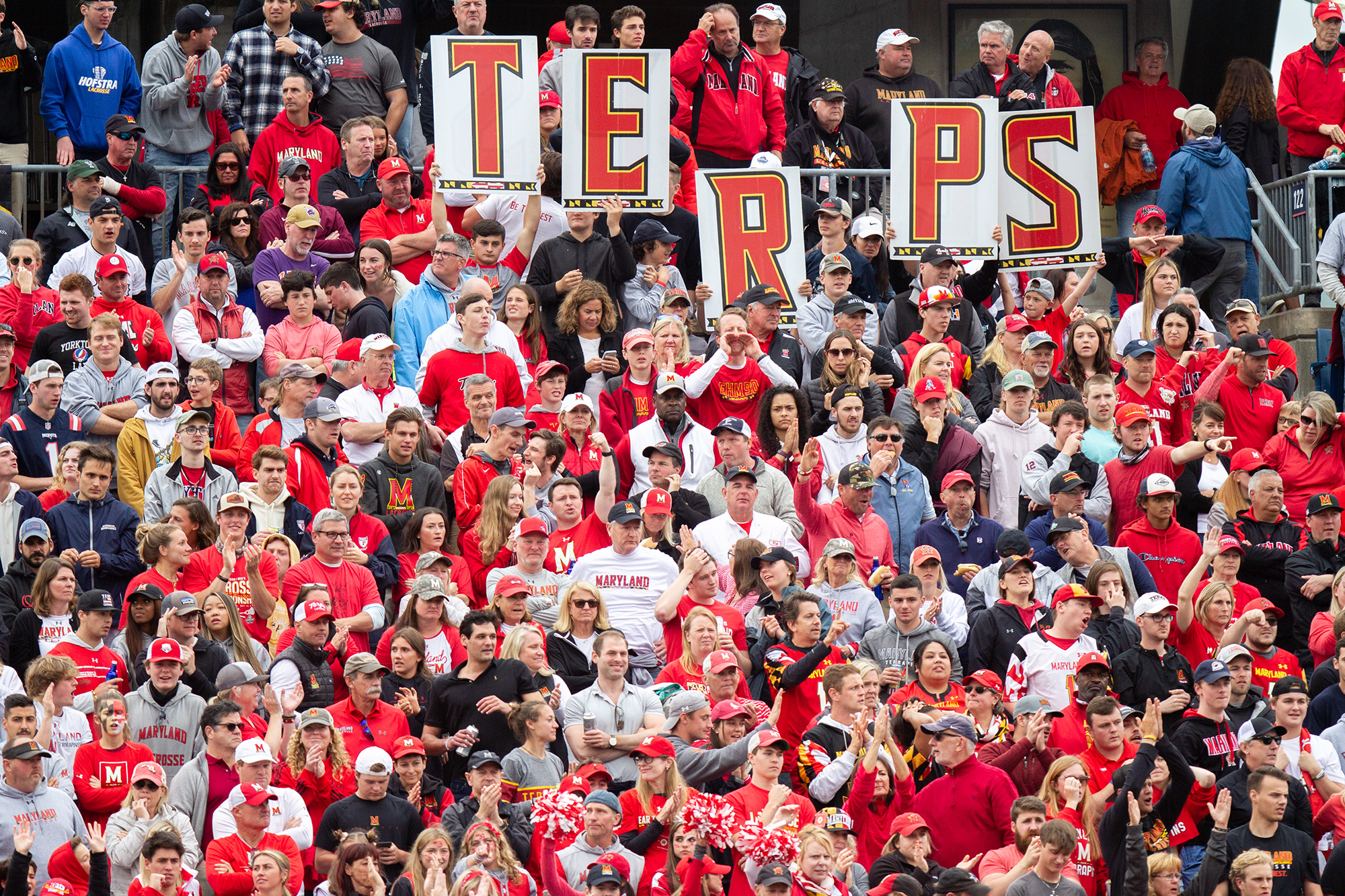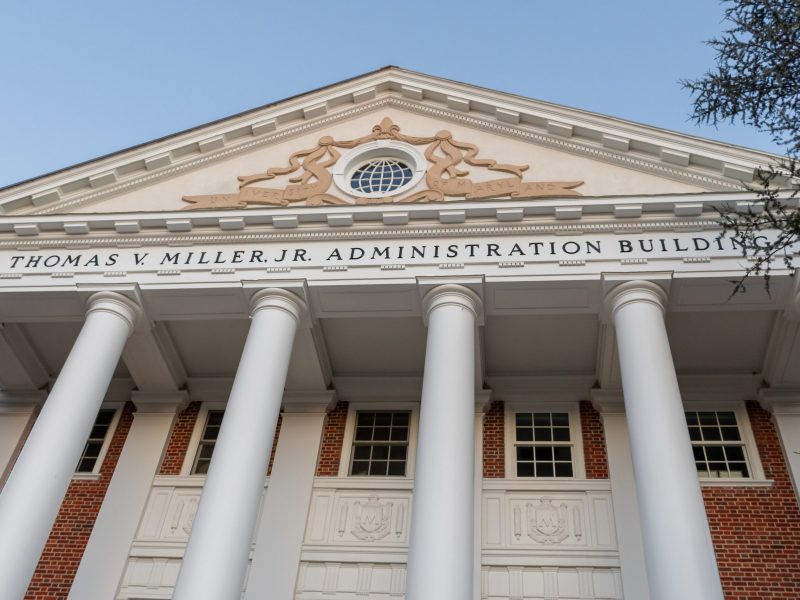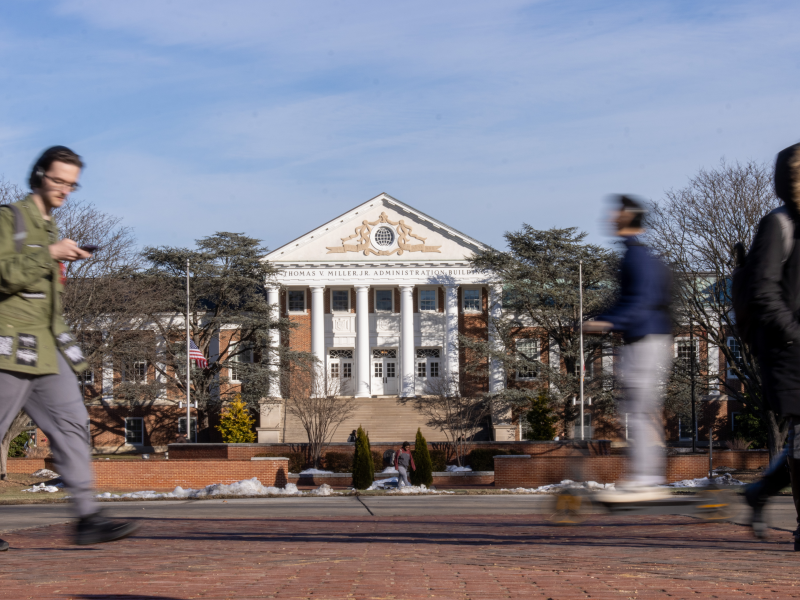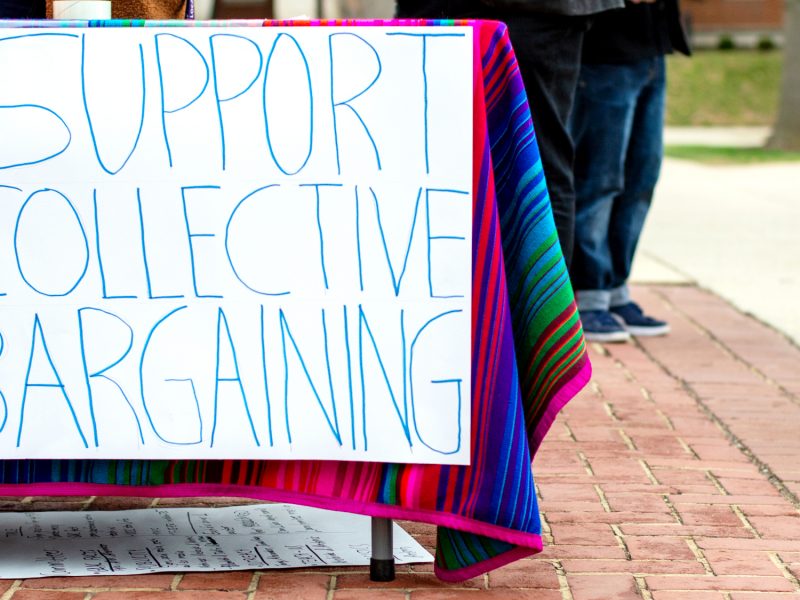Views expressed in opinion columns are the author’s own.
On Monday, the Supreme Court unanimously ruled the NCAA could not restrict universities from granting education-related benefits to its college athletes. While this is a momentous event in college sports history, the fight is far from over.
As students at the University of Maryland, we have all come into contact with the sports world — whether it’s through attending games, knowing a college athlete personally or seeing an advertisement on the campus.
Everyone knows how demanding the life of a college athlete is. Athletes are constantly balancing intensive sports and practice schedules with their classes and other obligations. With all of this hard work, you would think the NCAA would take care of its own athletes, especially given how much revenue they bring in for colleges across the country — but unfortunately, the reality is a tell-tale story.
At the beginning of every academic year, college athletes must fill out a series of forms and contracts. In one of the forms, a section stipulates the NCAA is the only party free to use and distribute any athlete’s name, image, likeness through the use of pictures or to promote different games or tournaments. Essentially, the college athletes are forfeiting the right to their own identity as the NCAA seizes control over their NIL.
Putting this practice into perspective, how comfortable would you feel signing away the right to own who you are?
This issue hits close to home. This spring, I conducted a survey of 27 college athletes across different sports teams at this university to better understand their perspectives toward the NIL guidelines and assess whether they felt protected by the university and NCAA. Two of these athletes then participated in an interview.
I found a majority of the college athletes surveyed want the chance to be compensated for their NIL. There is almost no opportunity for them to make money through securing a part-time job, which makes sense as almost all the college athletes in the survey reported some level of difficulty in balancing their athletic, personal and academic responsibilities.
The inability to use their own NIL or have time for a side hustle can often leave some college athletes trapped in tough situations. Although many are on full scholarships, several others are on partial scholarships, which only cover a portion of the expenses covered by full scholarships. For college athletes who are walk-ons, this predicament can be exacerbated, as they are also facing the burden of paying hefty tuition fees.
Because of this, student loans can represent a substantial burden for many partial scholarship and walk-on college athletes — a burden that could have been offset by part-time jobs. To make matters worse, if someone wanted to help, even through free food or supplies, the athletes may face repercussions from the NCAA under strict guidelines preventing any athlete from using their status for personal gain.
The health and safety of our college athletes is at stake. In a conscious effort to meet the demanding needs of college athletes, the first step in breaking this perpetual cycle is to critically reexamine long-standing NCAA policies.
It is crucial for the NCAA to prioritize supporting the well-being of our college athletes, which in turn could help them achieve a sustainable life balance during college.
Ensuring college athletes feel protected by the NCAA can optimize their quality of life during their athletic tenure and offer a safety net for those struggling financially. They shouldn’t be forced to choose between playing the sport they love at a high level and putting food on the table.
The majority of the college athletes I surveyed at this university had limited baseline knowledge and understanding of the existing NIL guidelines. Simply put, many athletes may not even know they’re signing away their rights. Universities must be held more accountable for informing their athletes about these guidelines, thus better equipping them with sufficient information to advocate for a change in policy.
My survey showed several of this university’s students are not happy with the current NIL guidelines. It is time for the NCAA to pay it forward and look out for our college athletes at Maryland and across the country.
Anthony Rowe is a recent History graduate of the University of Maryland. He will be attending law school at Catholic University in the Fall. He can be reached at arowe@terpmail.umd.edu.



